ANN HALLENBERG, mezzosoprano: 'Romantic music needs to get rid of some traditions to survive' (English version)
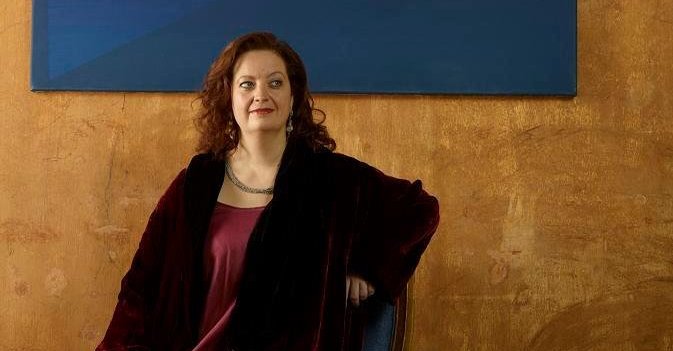
An interview by Alejandro Martínez
You are now working on your new CD dedicated to Marchesi. What can you tell us about this work? I can imaginea lot of research behind this CD.
The Marchesi recording consists of arias written for one of the last really great castrati Luigi Marchesi. The research has been done by the musicologist Stefano Aresi, and he’s also been advicing me during the recording in the style of Marchesi, his phrasing and vocal acting. Even more interesting is that all ornamentation and cadenzas are Marchesis own, either written down in the manuscipts or in other, similar arias. It really changes our wiew on ornamentation and how it was performed!
Could you resume your origins and beginnings in the world of music?
I started rather early with choir, and then took voicelessons from the age of 14. I studied at the Royal Academy of Opera in Stockholm and made my debut 1993.
Somehow you have specialized slowly in a very specific repertoire. Does the specialization opens or closes doors for a singer?
I don’t want to become TOO specialized. Sure, the baroque and castrato coloraturas fits my voice and I’d like to sing that as long as I can, but Brahms and Mahler fits my voice too. I don’t want to be put in a fach, I’ll sing what suits me and as good as I can and hope that the audience will enjoy. To sing only one thing gets too boring!
During the last decades the revival of ancient and baroque music has been spectacular. You've experienced that from a privileged position. How do you explain this process and where is going now this phenomenon?
It’s hard to explain this progress, I’m only glad it is happening! And I think music from later days are standing in line for this kind of revival. To go back to the composers manuscript and really look at it and ask ourselves; what does it really say? I think the romantic music needs to do this, and get rid of very old stuffy traditions to survive!
In this revival, what role did the encounter between Regietheater and baroque and ancient music?
Personally I like Regitheater, I think it’s important to show todays audience real feelings and not only gestures in pretty costumes. What I CAN’T understand is why we the moment we decide to do a “traditional” production, most choose to throw away realism and psychology. As if people in historical costumes can’t love, live or hate! I think it should be able to combine the two!
Cecilia Bartoli and you were born almost in the same year (1966 and 1967). Your careers have been parallel but very different paths. You replaced her in 2003 in Zurich in Il Trionfo del Tempo e del Disinganno. Dismissing any rivalry, do you maintain frequent communication? Is there a mutual admiration?
I only met Cecilia Bartoli once, when I covered for her, the day after my jump in (she was feeling better but still wanted to have the safety of a replacement in the house). For us mezzosopranos we seldom meet eachother, usually you only need one! And rivalry is very rare, it’s a thing media (and some fans) are trying to establish. We are all colleagues in a very hard profession, we need eachother as friends.
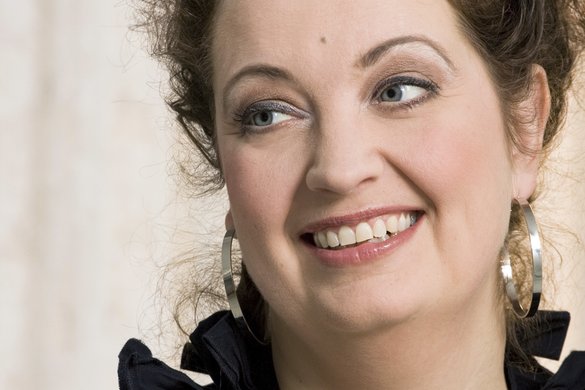
You appreciates a lot your personal and family life, how can this be combine with a life so full of commitments and frequent trips?
I choose the right husband!
From your wide repertoire, what has brought you the greatest joy? What has been a greater challenge for you? And what role you not sung yet and do you want to play?
About repertoire; it’s impossible to say. I’m lucky to have sung so many exciting things, but I also know that an almost endless amount of exciting music lies forgotten in libraries and archives, and no one dares to perform them. If you’re not playing Mozart, Vivaldi or Verdi you’re taking a huge economical risk that the audience won’t come.
Besides the opera, concerts and oratorios occupy an important part of your career. Is there any substantial difference between the opera and this repertoire?
I love Opera, and I started my career with opera, I love the magic and the almost tangible contact with the audience. But it’s very, very hard work and the concert-stage has other advantages. I would like to do more Lied to get even closer to my audience in the future.
You have worked with all the great conductors dedicated to this repertoire (Biondi, Zedda, Curtis, Rousset, Haim, Banzo, McCreesh, Gardiner, Minasi, Aresi…) Do you save any special memory of your work with any of them?
I’ve worked with so many and many has become close personal friends. And I’m happy when they honour me with asking me back.
Sweden is a country with great soloists today, not only yourself but also Nina Stemme, Iréne Theorin, Anna Larsson... and of course Nilsson and Björling in the past, among others. How important is today the opera in your country? Do you act there often?
Sweden still has very good singers and good education for young singers. Unfortunately the opportunities to sing “at home” are very small and most go abroad. I sing in Sweden perhaps once or twice a year. But, on the other hand that means I’m free when I’m home!
Have you dedicated to teaching? If so, how would you rate your experience?
I know I should start to teach and I also would like too. But I’m really afraid of the huge responsability for a young voice. I know from own experience how easily just a word can put you in the wrong direction and cause problems that can take years to fix. But, yes, I’ll start soon……
What are your next recording projects and incoming commitments in your schedule?
I have a couple of more recording projects ( Handels Imeneo,, Dublin Version with Fabio Biondi) and a wild mix of everything from Telemann to Mahler. My piano is constantly heaped with music to study. I’m lucky.
Compartir
Sólo los usuarios registrados pueden insertar comentarios. Identifíquese.

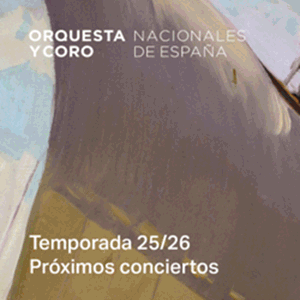
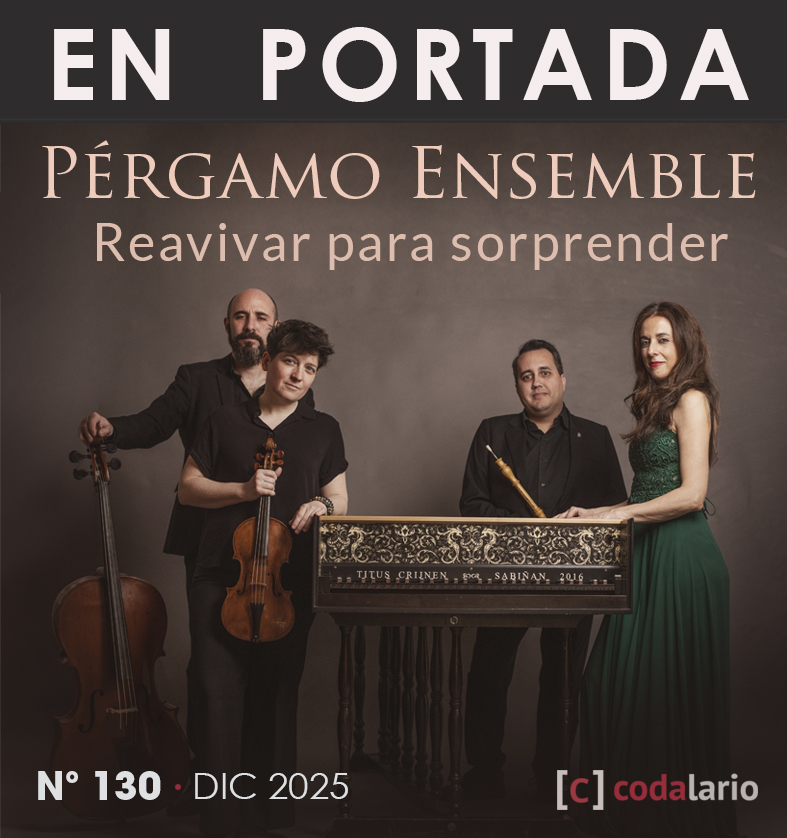

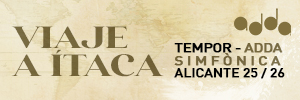


 Newsletter
Newsletter